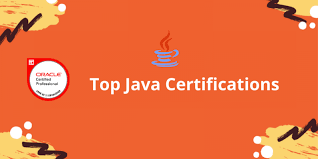Imagine yourself in 2034 working. Rather than clocking in, a sleek AI assistant welcomes you,
notes your stress level, and provides tailored daily guidance. Before entering the workplace, the
coffee maker makes your preferred mix. Still, one thing is absolutely crucial among all these
futuristic developments: moral behaviour in the workplace. For those aiming for CMI Level 5
credentials, knowledge of the Code of Ethics and Code of Conduct is vital. The ethical terrain
needs to change as technology shapes our working life to guarantee a fair, inclusive, and
respectful workplace. Read on to find out more.
Table of Contents
- The Rise of AI and Ethical Dilemmas
- Remote Work and Ethical Challenges
- The Importance of Diversity and Inclusion
- Ethical Leadership in a Digital Age
- The Role of Employee Well-being
- Ethical Decision-Making in Crisis Situations
- Conclusion
The Rise of AI and Ethical Dilemmas:
Already transforming the workplace, artificial intelligence is only going to become increasingly
prevalent. AI handles chores ranging from performance reviews to recruitment, so there is a
great chance of bias and discrimination. Imagine an artificial intelligence system designed to
find the top job applicants. Should the training data be biased, it could favour some groups over
others, spreading inequity.
Businesses must give ethical artificial intelligence top importance by guaranteeing justice,
openness, and responsibility. This covers routine AI system audits, varied data sources for
training, and human supervision to find and fix biases. Workers should be informed on how
artificial intelligence choices are made and on how to object should they feel there has been a
mistake.
Remote Work and Ethical Challenges
Thanks to the worldwide pandemic, remote work has taken off and is here to stay. Working
from home presents additional ethical concerns even if it gives comfort and freedom. How
should companies, for instance, track output without violating people's privacy? A balance
between responsibility and confidence is vital.
Companies need clear rules on what kind of monitoring is okay, like monitoring work-related
actions during office hours while still allowing people to have personal time. Frequent check-ins
help create an open communication culture by substituting for intrusive surveillance.
Companies should also offer tools for preserving a good work-life balance so remote employees
are free from pressure to be online constantly.
The Importance of Diversity and Inclusion
Diversity and inclusion (D&I) are vital elements of a modern company. Future-forward
businesses understand that a varied staff offers many ideas and stimulates creativity and
innovation. Still, reaching actual diversity transcends employment policies. It calls for creating a
welcoming atmosphere where every staff member feels appreciated.
Organisations should set up mentoring programmes, bias training, and employee resource
groups to advance D&I. Setting the tone from the top, leadership must mirror the variety they
hope to see. Frequent evaluation and update of D&I policies guarantees their continued
relevance and efficacy.
Ethical Leadership in a Digital Age
Digital-age leadership calls for a fresh set of moral guidelines. Given the fast pace of change,
leaders must negotiate difficult moral terrain and make decisions that fit ethical standards and
corporate objectives. This calls for a thorough awareness of ethical theories and the capacity to
predict their long-term effects.
Leaders should prioritise transparency so that ethical questions may be voiced without regard
to reprisals. They must set an example by demonstrating moral behaviour and owning their
mistakes. Maintaining the organisation ahead of the curve requires ethical leadership, as does
keeping informed about technical developments and their possible ethical consequences.
The Role of Employee Well-being
The first concern of ethical business conduct is employee welfare. Companies must proactively
help their staff members' mental and physical health as the boundary between work and
personal life gets blurry. These covers providing mental health resources, accommodating work
schedules, and advancing a good work culture.
Initiatives aimed at well-being should be customised to satisfy the varied needs of the
workforce. Frequent polls can point out areas of concern and gauge the success of current
initiatives. Promoting an honest culture about mental health will help lower stigma and
empower staff members to get treatment when needed.
Ethical Decision-Making in Crisis Situations
Crises—financial, environmental, societal, or otherwise—test the ethical basis of any company.
A company's response during a crisis will shape its reputation going forward for years. Making
ethical decisions amid a crisis means juggling the requirements of several stakeholders—from
consumers and staff to investors and society.
Businesses should have a crisis management strategy with ethical rules that guarantee moral
actions are taken. Open communication is vital since stakeholders must believe the business is
managing the matter properly. Drawing lessons from past crises and modifying plans can help
to build ethical resilience.
Conclusion:
Maintaining a strong ethical foundation is more crucial than ever when we accept new
technologies and negotiate evolving society standards in the dynamic and always-changing
direction of ethics and behaviour in the workplace. Companies that give ethics top priority will
not only foster loyalty and trust but also, over time, propel sustainable success.
In this bright new world, where artificial intelligence permeates every action and remote work
is the standard, ethical issues guide our path. Encouraging openness, inclusivity, and well-being
will help us build not only highly technologically advanced but also quite human workplaces.
The future of work is here; it is up to us to make sure it is one we can be happy with.
Enhance leadership skills with The Knowledge Academy courses.

 Naima Seoservices
Naima Seoservices









